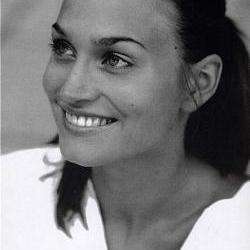Alban Berg’s Wozzeck is a distilled work of musical genius, based on a forward thinking dramatic masterpiece. Georg Büchner’s fragment Woyzek features a protagonist who is not rich, powerful, wealthy, clever nor even morally upright, and it must have blown minds in the 1830s. Likewise, Berg’s opera, composed between 1914 and 1922, was incredibly modern in sound and subject despite the fact that he had not yet been inducted into the world of serialism. It is a musical mélange of everything from waltz, military music and folk song to atonality and Sprechgesang distilled into just 90 minutes and 15 scenes, and the impact it had on theatre music cannot be overstated. On the heels of the romantic, with all its euphemism, charm, extravagant costuming and coy flirtation, Wozzek’s subject matter is shockingly brash. One would one would be hard-pressed to think of more than a handful of other operas – even today – featuring his calibre of anti-hero. Moreover, the body and the physical in all its raw grossness plays a key part with prostitution, digestion and the basest human motivations all held up to the light.
Robert Carsen's new production for the Theater an der Wien subtly yet boldly underlines Wozzeck’s displays of the bodily, the low and the hopeless. Gideon Davey's designs are clad in camouflage greens and browns, but there is nothing drab about the direction. Every scene shifts in focus: a camouflage curtain is pulled back, revealing a camouflage hall. The space is filled with tables, pianos and a brass ensemble and, finally, generic, dead soldiers in fatigues. Thanks to atmospheric lighting, the thin line between bleak and beautiful is navigated, leaving the audience visually satisfied, but also immersed in the claustrophobic world of hopelessness which the characters inhabit. Wozzeck drowns not in a lake, but amongst a sea of dead soldiers, who then rise again – never escaping the eternity of war. Likewise, Marie’s child closes the opera, hobbling off into blackout not on a wooden horse, but on a rifle. Without glitz, extravagance or the need to be expressly shocking, Carsen's production does absolutely everything an exceptional production needs to do. It offers a complete world that both tells the story and reflects on the truth behind it. From the transitions to the curtain call bows, every detail was thoroughly thought-through.
There was not a weak link in the cast. The Arnold Schoenberg Choir were effective drunken soldiers (and their female accessories), and the Grazer Kapellknaben were both clear-voiced songbirds and engaged performers. Likewise, the supporting cast, from John Daszak's Captain, Benjamin Hulett's Andres and Aleš Briscein's Drum Major and, particularly, Stefan Cerny's Doctor to minor characters such as Juliette Mars' Margret and Erik Årman's drunkard were next to irreproachable.
By far the most three-dimensional cast members were Lise Lindstrom's Marie and Florian Boesch's Wozzeck. While the rest of the characters are written as patently unaware of the pointlessness and misery of their existence and often find a brand of sadistic joy in torturing their inferiors, Marie and Wozzeck are both openly aware that they are unhappy. Marie uses sex and – in this production – heroin to escape periodically, but Wozzeck is consumed by his misery until it drives him to slit Marie’s throat and then end himself. Lindstrom’s magnificent vocal focus and expansive range cut through the orchestra, regardless of tessitura, while effectively portraying a self-destructive, harried, unhappy woman and a negligent mother. Boesch was ideal casting for this particular anti-hero. Physically, his Wozzeck looks like a meat-packer who could get into an Irish pub brawl any given Tuesday, but vocally he offers a wealth of complexity and depth in phrasing, tone and dynamic, all of which was utilized to great effect in this role.
The Vienna Symphony Orchestra trilled, danced and screamed excellently under Leo Hussain’s able baton, Eberhard Kloke's orchestral reduction an unfortunate, but necessary, price to pay for the privilege of staging this work in a theatre of this size. All in all it was a courageous and worthwhile effort from start to finish. And if, as Wozzeck’s Captain contends, “nur ein Hundsfott hat Courage”, I will happily join the ranks of the scoundrels.




